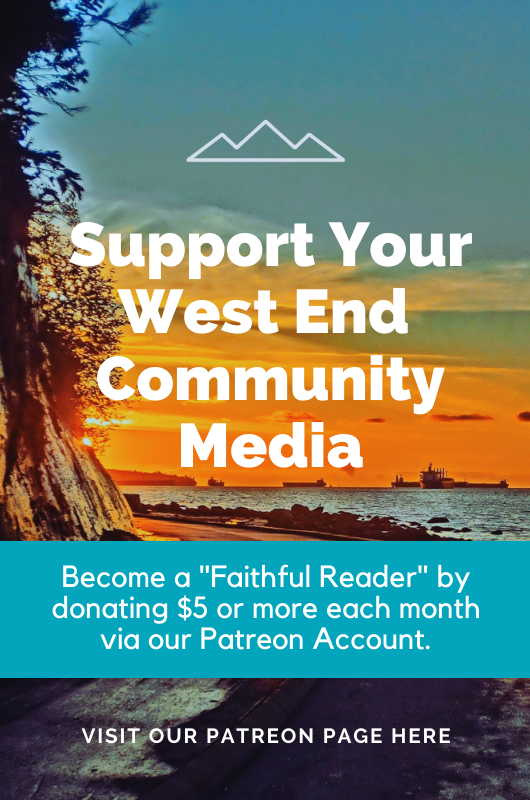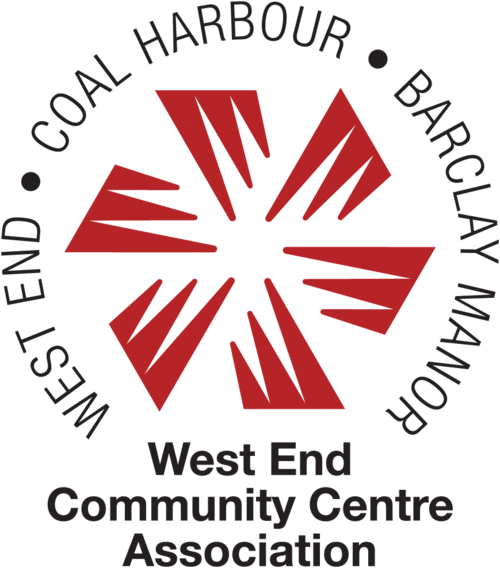WEST END VOICES
/Judy Graves
HOMELESSNESS IS EVERYONE’S PROBLEM
Solutions Are Both Long-Term, Short-Term, and Personal
by Judy Graves
From the burning of the Australian bush to the burning in American cities, Donald Trump bringing us to the brink of a third world war, a near impeachment south of the border, Harvey Weinstein, the Dow plunging, mass shootings in rural Nova Scotia, and COVID-19 circling the globe, the year 2020 has been a Goat Rodeo. Closer to home, on our little peninsula of the West End, we have isolated, masked, bubbled, worked from home, lost jobs, learned to Zoom, while we have watched homelessness increase.
Homeless, or housed, our neighbourhood has lurched through constant change, and one crisis after another. Communication from public servants has been all but non-existent. We have all lost our sense of control over our environment. We are all stressed. We are all on our last nerve.
I hope to explain a little of what has caused the homelessness, and a little of what is coming to address it in the short term, and some actions we can take as a community.
Judy Graves shares a moment with an unhoused friend. A human connection, even the offer of a pair of socks, can make all the difference.
When COVID struck Vancouver, and we were being told to stay in our homes, many people lost the place they were living. In an effort to create safe distance in the shelters, VCH reduced the number of people staying in each shelter, leaving some with nowhere to go but the streets. Drop-in services were closed or greatly reduced. Guests were no longer permitted in residential hotels and supported housing. As many homeless normally sleep on the floor of a friend's room during the day, this left them, too, with nowhere but the street to lie down. The places homeless people usually go to experience a bit of respite and normal life, places like the Gathering Place, the Coast Foundation, libraries, churches, community centres, the neighbourhood houses and fast-food restaurants all closed, and with those closures access to washrooms, showers and respite from the unrelenting sun was gone.
As well, the invisibility of homelessness disappeared, people who were once inside most of the time are now visible 24/7.
The shelters are full. The supported housing is full. The residential hotels are full. People who are outside have no choice but to be there. There is currently nowhere else for them to be.
What has been done? The "temporary" winter shelters have been kept open, rather than closing as they usually do in spring. For a while, two community centres, the Roundhouse and Coal Harbour were opened to accommodate people, but have closed to prepare to be used as community centres again. The Buchan Hotel in the West End and two larger tourist hotels on Granville Street have been purchased, and are now occupied by people who were homeless. The Gathering Place is open but at reduced occupancy. The Men's Shelter at 150 Cambie will move into the old Nurses Residence at St Paul's about Christmas time. It will not have more beds than it has currently, but 16 of the beds will be medically supported by the hospital, for older men needing convalescent care.
Mayor Kennedy has called a special Council meeting to ask staff to report back on three options.
1. Leasing or purchasing housing such as hotels.
2. Establishing a temporary encampment on vacant land.
3. Temporarily converting City-owned buildings into emergency housing.
The Mayor has also asked staff to expedite the construction of 450 units of modular housing.
All of these solutions to be implemented jointly by the City, BC Housing and VCH.
It is also hoped that temporary Winter Shelters, with distancing and PPE, will be able to open by mid-November, as they usually do.
Celine Mauboules, Acting Managing Director of Homelessness Services and affordable Housing, City of Vancouver, explains that no stone is going unturned, but that options are complicated by a virus that is being understood by ever new research, requiring frequent changes in plans, nimbleness and coordination with multiple partners. Plans now, are to report back to Council in mid-October.
While we are waiting for solutions both permanent and temporary, our days and nights are getting wetter and colder. Our neighbours need us. If we have a spare warm or waterproof coat, gloves, hats, socks, blankets, those among us who live outdoors will soon need them. Get to know the person you pass on the street every day by name. Learn their interests. Ask it they have a reliable source of drinking water. Occasionally, ask them what they would like to eat, and bring them some food. Have a conversation. Go ahead and give them cash when you can. To have no privacy, to be constantly exposed to public gaze is deeply humiliating. The strongest people fall apart in homelessness.
If you have concerns about someone who is homeless, at risk of an overdose, or experiencing a mental health problem, the City of Vancouver has an information sheet/poster you can find here.
To be treated with care and dignity by a neighbour makes all the difference.
______________________
Long-time West End resident Judy Graves served for 30 years as the City of Vancouver’s point person on housing and homelessness. Judy was awarded the Freedom of the City award in 2014. She retired from her City post, but not from her concerns for the homeless and disadvantaged, and continues to cultivated caring connections with people living on the streets and in shelters, advocating
on behalf of those marginalized by homelessness.
VANCOUVER STREETS THROUGH AN ARTIST’S LENS
Vancouver artist Oraf Orafsson is a frequent chronicler of several facets of life in the city, including the results of our endless addiction to plastics, and scenes on the sidewalks and alleys where the homeless shelter. Here we share a gallery of his trenchantly titled images. We’ve all seen these sorts of moments before, walked by and tried not to gawk, pretended we didn’t notice. Notice now,
Click on each image to enlarge, and contemplate the magnitude of the challenge we face in making our community whole again, for everyone.
You can find more of Oraf’s work, including his whimsical (sort of) “Chairs of Italy” series, on his Facebook page here.



















